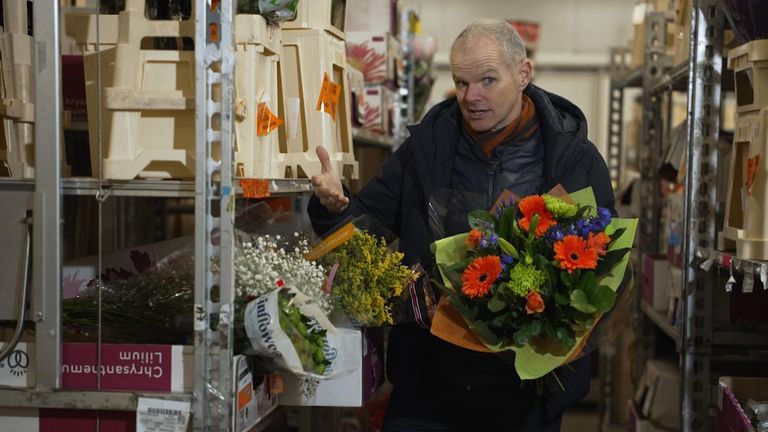Why meat, fish, cheese and dairy imports will cost more from today
Food and fresh flower imports from the European Union are subject to new Brexit customs controls from today, adding more than £300m a year to the price of trading with the continent and forcing up the price of food for British consumers.
Under the new Brexit red tape, imports of chilled and frozen meat and fish, cheese and dairy products, and five common varieties of cut flowers will require an export health certificate, signed off by a European vet or plant inspector, before they can enter the UK.
From 30 April the same categories of goods will face physical inspections at the border, raising the prospect of delays and shortages in fast turnaround supply chains.
The new rules come four years after similar checks were imposed on UK exporters to Europe, and have already been delayed five times because of concerns about disruption and increasing costs to consumers.
£330m a year cost increase
The government says the checks are required to protect UK biosecurity and prevent pests and diseases from being imported, and level the playing field for UK exporters.
Its own estimates say the cost of trading with Europe will increase by £330m a year however, and increase food inflation, a key driver of the cost of living crisis, by 0.2% over the next three years.
Goods from Ireland will be subject to controls for the first time but those coming from Northern Ireland will not. Despite being part of the European Customs Union, they are subject to lighter controls under the Windsor Framework, due to be revised as part of a deal to restore power-sharing at Stormont.
Business groups in the UK and Europe have raised concerns about the costs and disruption likely to flow as a consequence.
The UK imports around half of its pork from the EU and the industry says the new rules, particularly physical checks planned for April, are impractical and should be reviewed.
Read more:
Analysis: Has Sunak got Brexit done after power-sharing agreement?
Italian grandmother who has lived in UK for 42 years told to leave
Be the first to get Breaking News
Install the Sky News app for free



‘We should sit down with the EU’
Peter Hardwick of the British Meat Processors’ Association told Sky News: “This is absolutely anathema to the current government but we should sit down with the European Union, negotiate a comprehensive veterinary agreement based on alignment. That would wipe away this problem overnight.
“It would remove all the costs, and would also significantly resolve the issues in relation to goods moving to Northern Ireland. I know that’s a difficult thing politically but that’s what we believe should be done.”
Click to subscribe to the Sky News Daily wherever you get your podcasts
Disruption is expected to be minimal in the early stages as checks will be restricted to random online paperwork inspections, and officials say they will be pragmatic to avoid delays.
Baroness Lucy Neville-Rolfe, minister of state at the Cabinet Office, said: “Our aim is to have border controls which maximise the protection of the UK population from harms such as drugs and animal and human diseases while minimising the disruption to legitimate trade.
“The new UK system being introduced over the course of this year makes a huge stride towards meeting this objective. We have worked with traders and businesses extensively to design the controls and will continue to listen to their feedback.”

